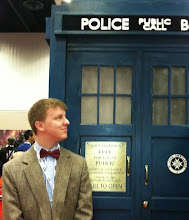The screenplay really is the backbone of a movie. A lot of people who are writer/directors are considered auteurs like Wes Anderson and Quentin Tarantino of recent fame. Those are the strongest examples of auteurs because they have created their own visual and writing style. Their movies flow because they know how to adapt their own work when they’re dealing with their unique stances on dialog. Obviously beyond the words said, they can control the themes that drive the story.
Through a director who is an auteur does not pick a script randomly out of a hat. Those who are considered to have a very specific type of film usually aren’t credited as screenwriters. Alfred Hitchcock is the obvious example. His popularity is so strong that certain thrillers are even called Hitchcockian. Even though he is not physically writing the scripts, he knows what he wants to talk about. When an auteur is interested in a script, there is something there that sparks him consciously or unconsciously. Jason Reitman recently spoke in an interview that he didn’t even recognize that all of his films tend to focus on the importance of family. He may not be as noticeable as an auteur as Hitchcock or Martin Scorsese, but he approaches the material in similar fashions. This argument goes beyond the script as well. The director may not have personally painted the set, but he knew who to hire to create the set that he wants.
Often times established auteurs work with the same people. Brilliant cinematographer Roger Deakins has worked with The Coen Brothers on majority of their films. Thelma Schoonmaker has edited each one of Scorsese’s films since the 80s. Directors Michael Powell and Emeric Pressburger went forward to create a company called the Archers, which regularly had the same cast and crew in order to create the vision they wanted.
It can also be argued that the roles can be reversed. In some cases the writer can be the auteur and the director is the means to carry that style. There are screenwriters like Charlie Kaufman and Aaron Sorkin who draw audiences on their names alone. A scene can be played and its writer can be instantly recognized. Kevin Smith is a name recently that has dialog and characters that can be recognized with his traits. He often admits his shortcomings as a director because his true vision lies on the written page. Although I am still looking forward to Cop Out, I do not believe it is a “Kevin Smith movie” in the same vein as Clerks II or Zack and Miri Make a Porno since he is only directing, not writing.
Not everyone can be Robert Rodriguez in El Mariachi: a lone man as his entire crew. More people working on a movie don’t mean a vision is compromised. Sometimes it is strengthened. With the right collaborators, the auteur has the potential to create something really special like a Raging Bull, Vertigo or even a Chasing Amy.
http://www.thefilmyap.com/2010/02/28/writing-about-auteurs/


No comments:
Post a Comment